Date: November 23, 2021
Place: Online, - On Line
Description of the event:
Background
The Mediterranean Sea attracts 70% of world´s nautical charter demand, mostly in EU countries and Turkey. The European charter sector contributes with an estimated yearly turnover of around € 6 billion, with charter tourists staying longer and spending almost twice than other tourist segments. The sector provides an exceptional opportunity for job creation, even more if it succeeds to diversify, stimulating competitiveness and performance off season, and adapting to changing trends such as digital transformation, environmental stewardship or the sharing economy. Excellence and innovation are crucial to ensure charter tourists can rely on high-quality services across the Mediterranean. New business models such as skippered charters,cruise style chartering (cabin charter) and skipper or agency-mediated packages are reshaping the industry and illustrate well the potential for adaptation to consumer expectations, including ageing and other segments new to nautical tourism.
However, although the Mediterranean is often considered as a single “regional brand” and charter activities are similar across nautical destinations, there is no common training scheme and requirements for skippers of small commercial boats across EU Member States and other non-EU Mediterranean countries are different, affecting quality, competitiveness and security. This creates differences as regards requirements across qualifications and countries, and licenses obtained in one Member State are most often not recognised elsewhere, creating confusion and unfair obstacles in the Single. This is particularly important when looking for professional skippers of Small Commercial Vessels below 24m in length or 200 GT in weight, because there is no harmonized sectoral regulation, licenses nor training. This lack of clarity and cross-border fragmentation is an important problem for skippers and charter companies, but also for coastal authorities, boat owners, insurance companies and customers, and thus one of the main obstacles for excellence, competitiveness and sustainability of the charter sector in the Mediterranean.
As a top tourism destination and home to almost 500M people, the Mediterranean Sea faces severe cumulative impacts and is one of the world´s most tourism-dependent and vulnerable hotspots. Nautical tourism depends strongly on environmental assets, but also generates a range of pressures. The recreational boating industry is implementing more sustainable practices, developing innovative cleaner products and working with managers and policy makers to reduce its footprint and contribute towards marine health. Skippers are at the forefront of the sector and in close contact with the sea, and better trained skippers could minimise most impacts from boating and raise awareness among tourists.
Objectives of the Medskippers International Virtual Event
MIVE has the mission to highlight the importance of the Mediterranean nautical charter sector, and to promote its excellence and competitiveness at global level as a pillar for coastal tourism and environmental stewardship.
For this, the objectives of the MIVE are to:
· Increase awareness about the scale, diversity and contribution of the nautical charter sector in the Mediterranean and highlight the key role of professional skippers.
· Review and share good practices to promote a sectoral sustainable development, innovative entrepreneurship and environmental impact reduction
· Create a platform for decision makers to facilitate international collaboration at Mediterranean level, particularly about international recognition of professional skippers of small commercial vessels
Main themes discussed during the event
Key issues to promote a sustainable and competitive development of the charter sector at Mediterranean level include:
- Charter sector trends. Mediterranean coastal economies are mainly made up of SMEs and micro enterprises, very sensitive to fluctuations in tourism demand. The charter sector is highly specific and has some of the highest growth rates in the blue economy. It endured previous economic global crisis quite well, and although COVID19 had a serious impact on international tourism and also affected the sector, boating is currently seen as a safe way of spending vacations far from the crowd, and national markets managed to absorb the lack of traditional international demand by providing non-experienced clients who required professional skippers.
- The key role of professional skippers will be discussed in this new sectoral context, and particularly Professional skipper licenses recognition. The nautical charter is not regulated in all Mediterranean countries, and in those countries where there is some sort of regulation, requirements for skippers to work professionally in small commercial vessels vary greatly. Taking into account national sovereignty and difficulties encountered to provide some sort of harmonization in regulation, training and licenses, the promotion of bilateral or multilateral agreements could be a partial or temporary solution while States try to solve this entrenched issue.
- Skippers skills. Charter tourism does not cease out of season as maintenance and other works continue and contribute to local economy. Low seasons in terms of "sailing" are peak seasons in terms of administrative tasks, ship maintenance and repairs, commercial campaigns design, innovation processes aiming to offer an added value such as environmental awareness, and for entrepreneurial strategy in the nautical industry. Adapting professional skipper´s skills to the charter market demand could reduce their seasonal activity as "pure skippers" by forming them as valuable all-year-round workforce for the charter sector and the blue economy.
- Boating and the marine environment. Boating can affect the marine environment in different ways, spreading invasive species or discharging bilge waters. On the other hand, the charter sector and the professional skippers are ideally placed to contribute to environmental stewardship and marine management. All EU Member States are committed with the achievement of Good Environmental Status (GES) as one of the main goals of the Marine Strategy Framework Directive (MSFD). Different Mediterranean regions are approaching this issue by developing a broad range of policy measures and developing research project and initiatives aiming at understanding and reducing boating impacts.
Type:
- Website: https://medskippersevent.com/


 event:
MedSkippers Virtual International Event
event:
MedSkippers Virtual International Event